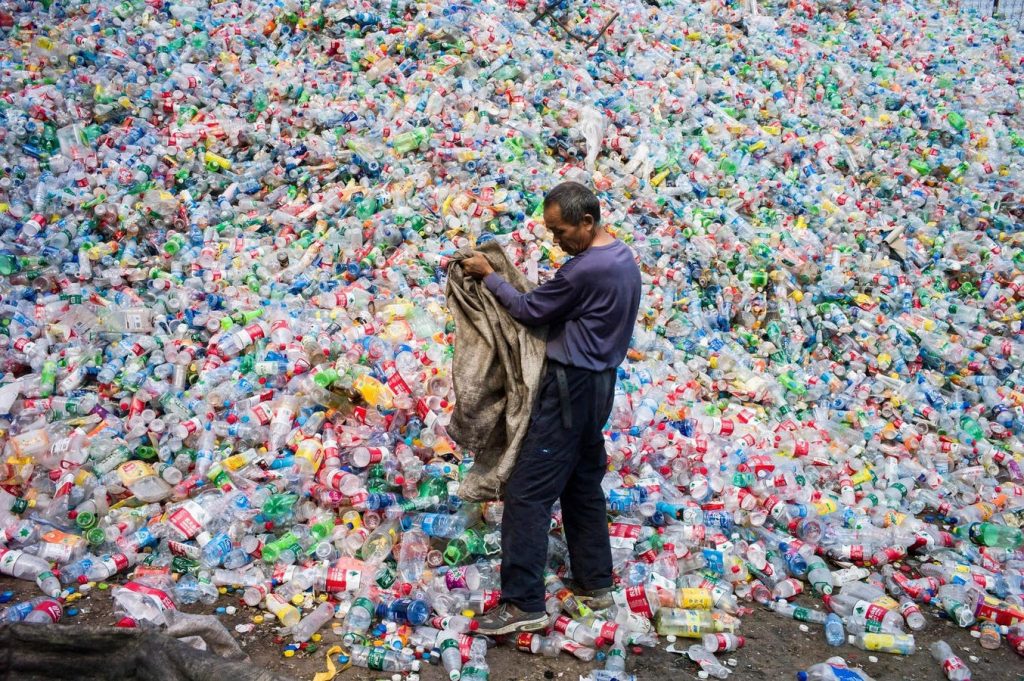The Investor View of the 170+ Countries Attempting to Do What’s Never Been Done
This spring, 170+ countries came together in Ottawa to push forward with a comprehensive plastics treaty that could turn the tide on our plastic waste crisis. If it works – and we’re still months away from knowing if we’ll succeed in ratifying a final treaty – we will see governments around the world acting in unison to enact legislation to address plastic waste. Currently, national and subnational governments around the globe have their own sets of regulations and practices regarding plastic waste and recycling, creating a dizzying prospect for any investor looking to allocate capital to solutions. So getting a global agreement – even to a minimum set of standards and policies – would be a huge win towards unlocking investment.
Circulate Capital’s Chief Impact Officer Ellen Martin had the distinction of sharing her experience as the only private capital asset manager in the room at the fourth session of the Intergovernmental Negotiating Committee to architect the Treaty. Alongside Unilever, the Government of Norway, the Ellen MacArthur Foundation, and India-based recycler Banyan Nation, she spoke about how the private sector can support the treaty. Below are four takeaways from the conference and an analysis of the commentary from the weeks since.
1.Don’t let perfect be the enemy of the good.
When you are trying to move a mountain, even getting a couple inches should be viewed as a massive success.
Like it or not, achieving a high-ambition treaty is unlikely — perhaps it never was. But there is still a strong possibility of some agreement on legally binding obligations and clear guidance for managing plastic waste. This would be a massive win for the environment and the circular economy. The current global patchwork of national and local policies is a significant barrier for investors as it prevents consistent risk assessments. Clear regulations and enforcement mechanisms are essential to mobilize private capital.
2.The private sector needs clarity on fundamental issues.
The Business Coalition for a Global Plastics Treaty has clearly articulated the industry’s asks. As a member of the Coalition, Circulate supports such clarity because we know successful investments hinge on clear risk and return frameworks. As Inger Andersen, Executive Director of the United Nations Environment Program, said in Ottawa, “Everyone wants this deal.” The treaty has the opportunity to find common ground on several key questions:
● How do we prevent material from leaking into the environment? With clear downstream guidance for responsible recycling and managed recovery, including design standards for materials.
● How do we avoid problematic materials and formats? Redesigning troublesome single-use packaging takes systems (re)thinking. It requires shared infrastructure and consistent government mandates to make reuse and refill economically viable.
● How do we pay for it? Extended Producer Responsibility (EPR) regulations should charge producers for plastic waste only if it can ensure the money is spent in ways that actually support waste management services and prevent plastic pollution, including collection. This is not a new idea, and many countries have these sorts of fees. But not all of it is used for the intended purpose. Well-thought-through and localized EPR regulation and enforcement mechanisms would unlock significant investment.
3.Policy can de-risk and incentivize private investment (or the opposite) – we’ve seen this first-hand!
Policy has an incredible influence on investment opportunities, and its absence prevents private capital deployment. Circulate Capital is living this through our investments in India and is encouraged by the progress being made in Indonesia, Vietnam, Thailand, the Philippines, and across regions in Latin America and the Caribbean.
In India, EPR implementation has been transformative, with minimum recycled content requirements paving the way for significant investments. Other countries are in line as well. However, inconsistent policies and enforcement across countries pose challenges and risks.
To catalyze further private investment, we need intermediaries, public-private partnerships, blended finance, and de-risking mechanisms. We also need to complement private return-seeking capital (which will invest in the CapEx) with “recovery as a service” revenue (or OpEx), the latter to be supported by public funding. We can see on the public side that there are many examples of creative ways countries are starting to access new fees, taxes, sustainability-linked bonds, use of sovereign wealth funds, and other instruments. If we can align these different types of capital, we can address the recovery of all solid waste, including plastic, and further reduce it, with a tremendous environmental benefit.
4.Harmonized targets and binding obligations are essential.
The INC process could dramatically change our impact on plastic waste, climate, and livelihoods. Beyond what we at Circulate can achieve with the status quo patchwork of country-specific policies, a successful global treaty with a robust financing mechanism could unlock some of the $15 trillion in assets managed by the 160+ signatories of the United Nations Environment Programme Finance Initiative (UNEP FI) Finance Statement.
For private capital to flow, the treaty must:
● Get countries to commit to harmonized targets and binding obligations: Level the playing field with clear, enforceable standards.
● Be catalytic: Set objectives that align financial flows from public and private sources and incentivize the private sector to properly manage plastic waste, treat the full lifecycle and mitigate risk.
● Ensure transparency: Promote assessment and disclosure of plastic risks and opportunities.
● Recognize the full spectrum of benefits: The treaty is only successful if it addresses the myriad concerns of Member States, from climate to livelihoods to biodiversity.
Can the Treaty deliver?
If successful, the treaty will offer an unprecedented opportunity for plastics action. As negotiations progress, watch for a follow-up column from me.
Read the full article here
